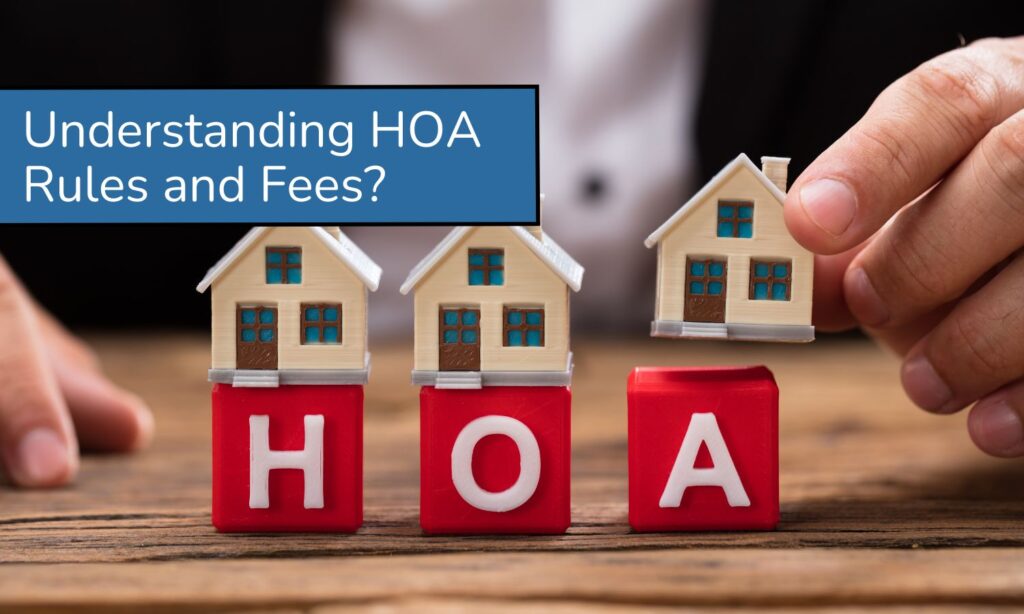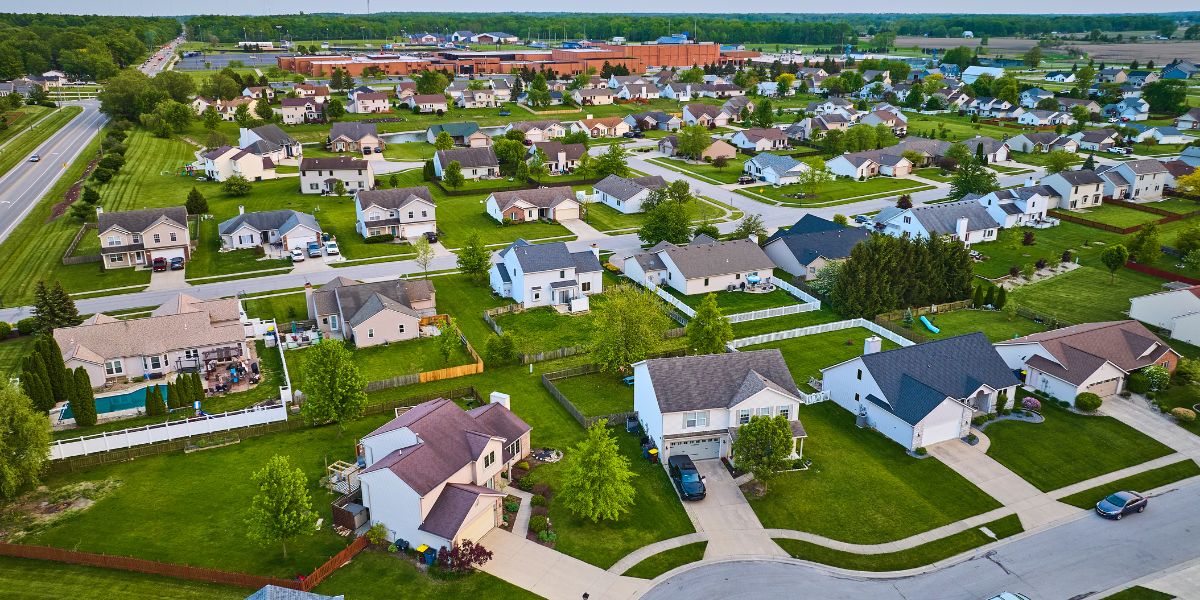For many homebuyers, purchasing a property in a community managed by a Homeowners Association (HOA) can offer significant advantages, such as well-maintained neighborhoods and access to amenities. However, it also comes with responsibilities, including adhering to specific rules and paying regular fees. Understanding what an HOA is, how it operates, and what it means for your lifestyle and finances is crucial before making a purchase. This guide breaks down the basics of HOAs, explaining their role, how they function, and what you should consider when buying a home in an HOA-managed community.
What is a Homeowners Association (HOA)?
A Homeowners Association (HOA) is a governing body established to oversee and manage residential communities. HOAs are typically found in planned neighborhoods, condominiums, and townhome developments, where maintaining a cohesive aesthetic and shared amenities is essential. Membership in an HOA is mandatory for homeowners in these communities, meaning they are subject to the rules and regulations set by the HOA and required to pay regular fees.
The primary purpose of an HOA is to preserve property values and foster a sense of community by maintaining common areas, enforcing standards, and providing services. This may include responsibilities like landscaping, managing amenities such as pools or gyms, and ensuring compliance with community rules. While HOAs aim to create a well-maintained and enjoyable living environment, it’s important to understand their governance and requirements before committing to a property.
How Do HOAs Operate?
Homeowners Associations are structured to ensure efficient management of the community. An HOA is typically run by a board of directors, which is often composed of elected homeowners who volunteer their time. Some HOAs also work with property management companies to handle day-to-day operations, particularly in larger communities.
The board is responsible for creating and enforcing rules, managing community budgets, and maintaining shared amenities. Decisions about rules, fees, and significant projects are typically made during board meetings, which homeowners are encouraged to attend. In many cases, homeowners can vote on important matters, such as electing board members or approving large expenditures.
HOAs operate under governing documents, including covenants, conditions, and restrictions (CC&Rs), bylaws, and financial policies. These documents outline the rights and responsibilities of the HOA and its members, providing a framework for community management. Understanding how the HOA functions can help homeowners navigate its rules and engage effectively with its governance.
HOA Rules and Regulations
One of the key responsibilities of an HOA is to establish and enforce rules designed to maintain the community’s appearance and functionality. These rules, often detailed in the HOA’s governing documents, known as covenants, conditions, and restrictions (CC&Rs), set clear expectations for homeowners.
Common HOA rules include guidelines on property appearance, such as maintaining landscaping, adhering to approved exterior paint colors, and ensuring a consistent look throughout the neighborhood. Restrictions may also cover home modifications, like installing fences, adding structures, or changing the roof design, requiring prior approval from the HOA.
Other regulations often address everyday living concerns, such as noise levels, pet policies, and parking arrangements. For example, an HOA might limit the number of vehicles a homeowner can park on the street or restrict where guests can park during visits.
Failure to comply with these rules can lead to warnings, fines, or even legal action in extreme cases. As a prospective homeowner, it’s vital to review the CC&Rs carefully before purchasing to ensure you’re comfortable with the community’s standards and restrictions.
HOA Fees and What They Cover
HOA fees are a mandatory part of living in an HOA-managed community and are typically charged on a monthly, quarterly, or annual basis. These fees fund the services and amenities provided by the HOA, ensuring the community is well-maintained and enjoyable for its residents.
Standard services covered by HOA fees often include landscaping for common areas, maintenance of amenities like pools, clubhouses, and fitness centers, and utilities for shared spaces such as streetlights and water for communal gardens. Additionally, fees may contribute to security services, such as gated access or neighborhood patrols, and insurance for shared property.
In some cases, homeowners may be required to pay special assessments. These are additional fees levied to cover unexpected expenses or significant projects, such as repairing a clubhouse roof or repaving community roads. Special assessments are often approved through a community vote and can add considerable costs to your budget.
It’s important to understand that HOA fees can increase over time as maintenance costs rise or new amenities are added. Reviewing the HOA’s financial statements and reserve fund can give you insight into how well the association manages its resources and whether fee increases are likely in the near future.
What Buyers Should Consider Before Purchasing in an HOA Community
Before buying a home in an HOA-managed community, it’s important to weigh both the financial and lifestyle implications. HOA fees should be factored into your monthly budget alongside your mortgage and other expenses. Consider whether the fees are affordable and whether the amenities and services provided justify the cost. Additionally, review the HOA’s financial health, including its reserve fund and history of fee increases, to avoid unexpected financial burdens.
Personal preferences also play a critical role in your decision. HOAs often offer benefits like well-maintained common areas and shared amenities, but they come with restrictions that may limit your freedom. If you value autonomy in landscaping, exterior design, or other aspects of homeownership, ensure the HOA’s rules align with your preferences.
Finally, carefully review the HOA’s governing documents, including the covenants, conditions, and restrictions (CC&Rs), bylaws, and meeting minutes. These documents outline the community’s rules, financial policies, and operational history. Consulting a real estate agent or attorney can help you understand these details and identify potential concerns before committing to a purchase.
Pros and Cons of Living in an HOA Community
Living in an HOA community comes with its share of advantages and disadvantages, which are important to consider before making your decision.
One of the biggest advantages of an HOA is the consistent maintenance of the community. Well-kept common areas, landscaping, and amenities like pools or parks enhance the neighborhood’s appeal and help protect property values. Additionally, HOAs often provide services like security patrols or gated access, which can offer added peace of mind. For buyers looking for a sense of community and shared resources, HOAs are often a great fit.
However, HOAs also come with downsides. The mandatory fees, which may increase over time or include special assessments, can strain budgets. Strict rules and regulations can limit personal freedom, especially if you’re used to making changes to your property without outside approval. Conflicts with the HOA board or disagreements with neighbors over rules can also create tension.
Understanding these pros and cons will help you decide if the benefits of an HOA-managed community outweigh the potential challenges based on your preferences and priorities.
Conclusion
Homeowners Associations play a significant role in shaping the experience of living in managed communities. By maintaining shared spaces, enforcing rules, and providing amenities, HOAs aim to create a pleasant and cohesive environment. However, the fees and restrictions that come with membership may not be the right fit for everyone.
Before purchasing a home in an HOA community, take the time to review its rules, fees, and financial health. Consider how the HOA’s regulations align with your lifestyle and whether the costs fit within your budget. Consulting with a trusted real estate agent or attorney can provide valuable insight and help you make an informed decision.
By thoroughly understanding what an HOA entails, you can confidently decide whether this type of community is the best choice for your next home.



